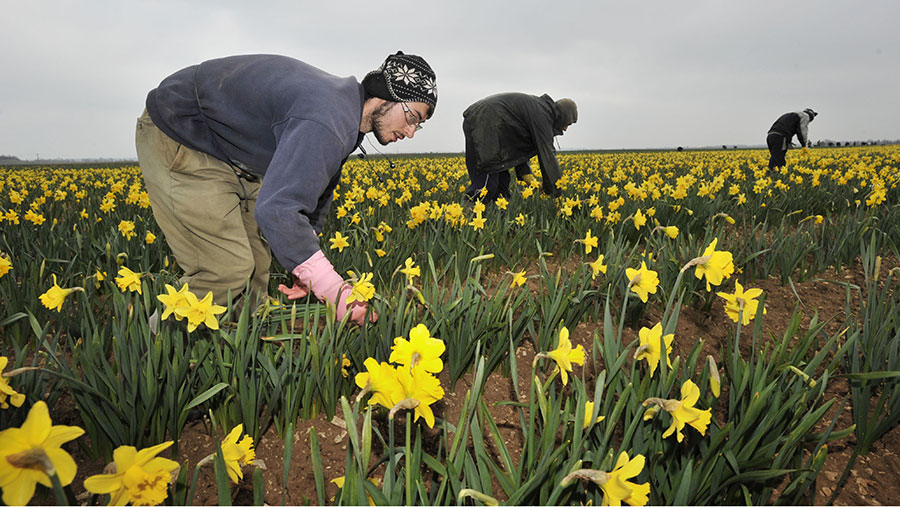Lack of seasonal workers ‘not end of the world’
 © Bruce Adams/Associated Newspapers/REX/Shutterstock
© Bruce Adams/Associated Newspapers/REX/Shutterstock UK agriculture will “go backwards” without seasonal labour – but it won’t be the end of the earth for the country as a whole, says a senior government adviser.
Alan Manning, who chairs the Migration Advisory Committee, was giving evidence to the House of Lords EU home affairs sub-committee on Wednesday (17 October).
See also: 10-point plan for attracting the best farm workers
He was being quizzed by peers about the migration committee’s recent report on the effect of European Economic Area migration in the UK.
The amount of land planted to crops such as asparagus, which rely on manual labour, had seen an extraordinary increase since 2004, Prof Manning told the committee.
That was when the EU welcomed 10 new member states – leading to people from central and eastern European countries coming to work in the UK.
“Seasonal agricultural workers essentially are 100% migrant in a way that no other sector really is anywhere close to 100%,” said Prof Manning.
Brits won’t do work
“There is no realistic prospect of that work being done by settled workers.
“If you cut off access to that labour… those sectors would find it much harder – and they would probably – to some extent – it is quite likely they would contract.”
He added: “You would go backwards. But I think we also say that wouldn’t be the end of the earth for the country as a whole.”
Prof Manning acknowledged that the NFU, which has campaigned for adequate access to seasonal workers after Brexit, “would not be very enthusiastic” about his comments.
But he said: “Agriculture as a whole is a low-productivity sector – there is a lot of heterogeneity within the sector, but its average productivity is 40% of the national average.”
Pilot scheme
“If you are wanting to make the UK a high-productivity wage economy, which we generally are, it is not clear that making life very easy for agriculture – giving them privileged access to labour – is a way to achieve that.”
Last month, the government announced a pilot visa scheme for seasonal farmworkers.
The two-year pilot allowing 2,500 migrant workers to come to the UK for up to six months was announced by Defra and the Home Office on Thursday (6 September).
NFU president Minette Batters described the new pilot scheme as “a big step in the right direction” – although the sector needs closer to 100,000 seasonal workers annually.
